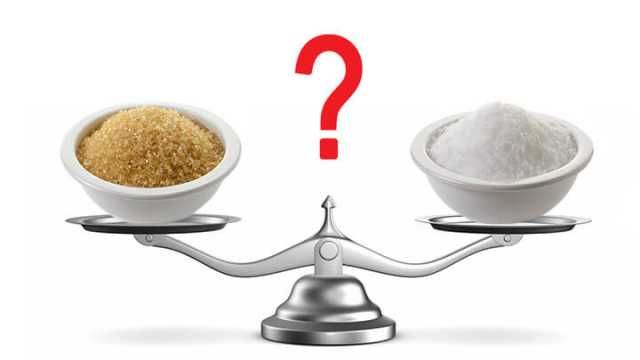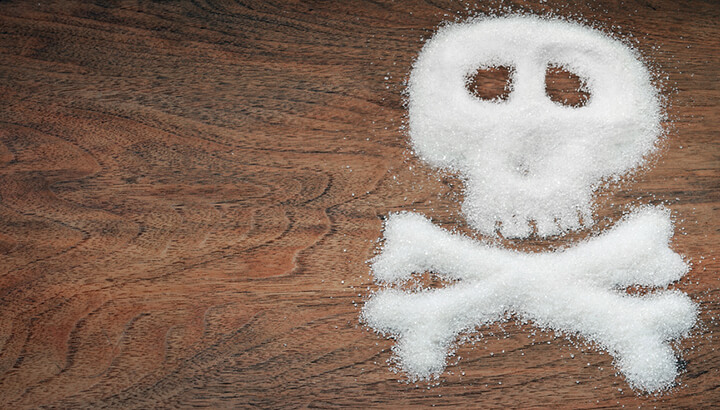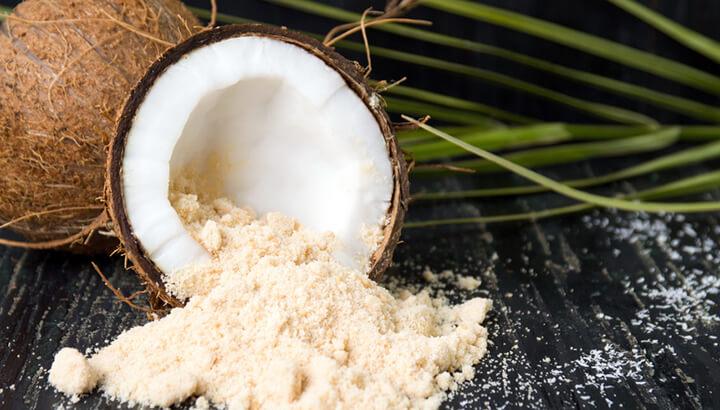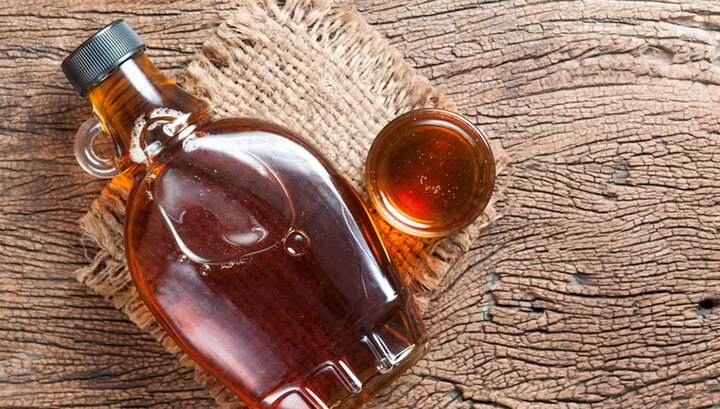
Since as long as I can remember I have told my children that sugar is the devil. It disguises itself as all sorts of pleasantries but, in reality, it can kill you. Some may say that this was a harsh way to raise my children but it has saved me trips to the dentist and instilled in my children a very healthy fear. Today, they are all grown up. When I hear them telling others, “Stay away from sugar, it will kill you,” I have to chuckle. I know that it’s for the best and they are sending a message to others about health and goodness.
Why sugar is the devil
So, how bad can sugar be? Truth be told, it is one of the worst, if not the worst, processed nightmares in our food supply today.
Sugar is by far one of the most powerful inflammatory substances on the planet. This inflammatory reaction is what causes a host of rather scary and life threatening medical conditions such as diabetes, cancer and heart disease. If you are concerned about your health, you need to be concerned about sugar!
The American diet is rife with sugar
Many of the supposedly “healthy” foods we eat on a regular basis contain dangerously high levels of simple carbohydrates. Take your typical breakfast, for example. Your “healthy” beverage of choice — a big ol’ glass of OJ — contains a whopping 21 grams of sugar, most of which is artificially added simple carbohydrates. Your “healthy” main course is a generous serving of granola or muesli, perhaps topped with some yogurt and a sliced banana. However, that bowl of granola is setting you back an impressive 12 grams of sugar, the yogurt probably throws in an extra 15 to 20 grams of sugar (unless you’re using plain yogurt), and the banana introduces around 14 grams of sugar into the equation. That’s more than five tablespoons of straight sugar, just for breakfast! And this is what many people consider a “healthy” start to the day.
The findings of a National Health and Examination Survey, which interviewed and gathered data on more than 31,000 Americans across the county, determined that the average person consumes an astounding 22 teaspoons of sugar per day. Unsurprisingly, most of this sugar comes from sugar-sweetened sodas, baked goods, candy, cereals and bread.
Sugar is linked to deadly diseases

Sugar is doing us some serious damage, individually and as a nation. Research has linked this excessive daily sugar intake to the development of high blood pressure, increased triglycerides, high LDL (“bad”) and low HDL (“good”) cholesterol, lowered insulin sensitivity and fatty liver problems. The sugar in these foods, it seems, is literally killing us.
Perhaps the most damaging side effect of eating too much sugar is its impact on insulin. Insulin is a critical hormone produced by the pancreas. It allows your body to utilize the sugar (glucose) from carbohydrates you eat in order to provide your cells with energy or to store the glucose for future use. Essentially, insulin helps to moderate the ebb and flow of glucose within your bloodstream. This ensures that your glucose levels never get too high or too low.
If you eat too much sugar over a period of time, your cells can become resistant to insulin. With constantly elevated sugar intake, insulin has to work overtime. Eventually, your cells get sick of insulin knocking on their doors at all hours. The resulting insulin resistance can lead you to develop hyperglycemia, which means you have toxically elevated levels of glucose floating around in your bloodstream.
The bottom line is this: the more sugar you consume, the more the body absorbs and the worse the toxic effects becomes.
So, what is coconut sugar?
Contrary to what you might think, coconut sugar does not come from coconuts. It is actually a product of the coconut tree itself — more specifically, the coconut tree’s flower buds. It is also known also as coco sap or coconut palm sugar.
Blossoms are cut and the nectar is collected into bamboo containers. The nectar is about 80 percent water, which is then heated to evaporate the liquid. After that, granules are left. They are brown in color and slightly larger than standard table sugar. The taste is very similar to brown sugar.
Differences and similarities
From a chemical perspective, coconut sugar is 70 percent identical to table sugar. It is comprised of two monosaccharides, glucose and fructose. What is left is made up of individual molecules of fructose and glucose, along with some trace minerals. Table sugar and coconut sugar both have four calories per gram.
However, coconut sugar is 70 to 79 percent sucrose and only three to nine percent each of fructose and glucose. This is in comparison to cane sugar, which is 50 percent fructose. But, keep in mind that sucrose is actually half fructose. So, there is no real advantage here, per say.
Coconut sugar is naturally rich in a number of key vitamins including over 16 amino acids, minerals and phytonutrients including potassium, zinc, iron, and vitamins B1, B2, B3 and B6. Regular sugar is so highly processed that all nutrients are stripped.
Glycemic index

The impact that carbohydrates have on blood sugar is measured on a scale called the glycemic index (GI). When carbohydrates break down quickly, they release a flood of glucose into the bloodstream.
These carbohydrates have a high GI rating. On the other hand, carbohydrates that have a low GI rating take longer to digest and release glucose slowly. Glucose is used as the reference food on the scale and has a value of 100. For example, a bagel has a value of 95 and chickpeas have a value of 33.
Although table sugar and coconut sugar are similar in many areas, coconut sugar has a substantially lower glycemic index of 36 versus table sugar at 60. This is due to a fiber called inulin which may cause the absorption of glucose to slow down. Because of this lower glycemic index, coconut sugar is popular amongst diabetics.
But, not so fast…
According to the Joslin Diabetes Center, glycemic index is not always a good indicator of that might happen to your blood sugar levels after eating. It appears as though there are many other factors pressing on this including:
- Your activity level
- Your age
- What else you ate with a particular food
- Your digestion rate
- The fiber and fat contents of foods
So, what does all this mean?
When all’s said and done, coconut sugar is not a super food — albeit a slightly more nutritious food than regular sugar. Although the manufacturing process is more natural, it is very similar in many ways to regular sugar. A good rule of thumb would be not to exploit this sugar in your diet and approach it with caution. If you are going to use it at all, do so sparingly at best.
More nutritious alternatives
Of course, I would suggest using all sugar in moderation. Here are some other nutritious alternatives that you can consider. But remember, moderation here is the key also.
Date sugar
Dates are one of those foods that should not be eaten by the handful day-in and day-out. Sure, they offer key nutrients, including B-complex vitamins. But, they’re still around 70 to 80 percent pure sugar. In comparison to granulated sugar, however, buying a quality source of date sugar that has not been processed or refined will help reduce your overall sugar intake.
In order to better understand the effect that dates and date sugar have on our health, it’s important to focus on one key population — diabetics. Within one study, five types of dates were examined in terms of their glycemic indices. While studying type 2 diabetics, researchers found that all five types of dates showed low glycemic indices and did not promote a spike in patients’ blood glucose levels.
Blackstrap molasses
Having the lowest sugar content of any cane sugar product, blackstrap molasses is unlike refined sugar in that it too contains key vitamins and minerals. From copper to iron, potassium to magnesium, research has shown this sugar substitute to promote key health benefits. These include reduced stress levels and enhanced skin health.
When you consume molasses, especially blackstrap varieties, you benefit from key antioxidants. Within one study, researchers found that sugar cane molasses exhibited a protective effect in cells. Researchers concluded that molasses can be used as a low-priced, highly nutritious commodity in developing countries.
Maple syrup

Acting as a sweet addition to any stack of blueberry pancakes, pure maple syrup is anything but pure sugar. Maple syrup contains protein, fat, water, as well as vitamins and minerals. This sweet treat actually offers key health benefits when consumed in, you guessed it, moderation.
Maple syrup may even help reduce one’s use of antibiotics. In 2015, McGill University discovered something interesting about our nation’s go-to syrup. Published in Applied and Environmental Microbiology, researchers found that when maple syrup was combined with common antibiotics, it increased the susceptibility of microbes.
The researchers tested maple syrup extract’s effect against infectious strains like E. coli. Researchers found that when applied by itself, the maple syrup was mildly effective. When combined with antibiotics, however, it enhanced the effectiveness of these drugs, helping to reduce overall antibiotic use.
Although this is exciting, the benefits of maple syrup do not end there. Another 2015 study showcased the potential anti-cancer benefits of this syrup based on key phenolic compounds. When researchers administered colorectal cancer cells with maple syrup, they observed lower growth rates. Researchers concluded that maple syrup may inhibit cell proliferation and invasion, with very few adverse effects.
Raw honey
When limited in terms of intake, raw honey is most certainly an optimal choice in comparison to refined sugar alternatives.
Plenty of studies have documented honey’s antibacterial effects, but what about its effect on blood sugar? Within one study, diabetics were once again studied. Researchers found that after eight weeks of consumption, honey actually offered beneficial effects on both blood lipids and body weight.
Although there were no differences between the honey and placebo group regarding fasting blood sugar, the honey group did experience a slight increase in hemoglobin A1C levels. Meaning, once again, moderation is key. Another recent study highlighted the benefits of raw honey in combination with anti-diabetic drugs.
The addition of raw honey actually improved glycemic control, increased antioxidant defenses and reduced overall oxidative damage. From its anti-tumor benefits to its anti-inflammatory effects, honey offers numerous health benefits when consumed in small amounts. Just remember: quality matters. Stick to local, organic raw honey — not the honey found in bear-shaped containers.
— Susan Patterson

